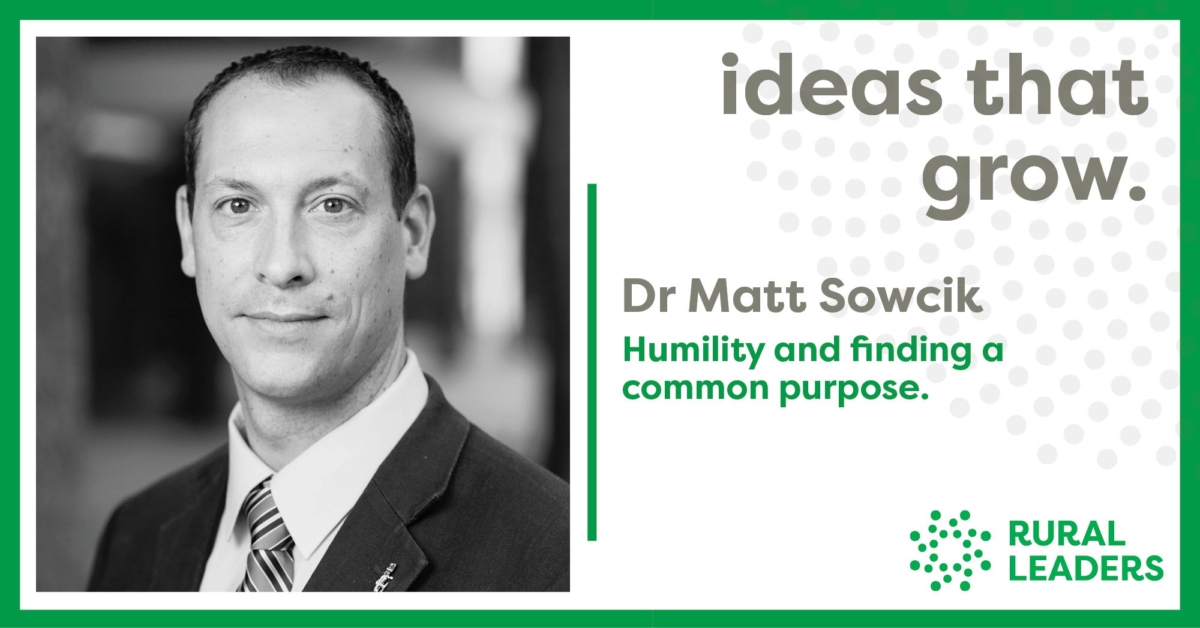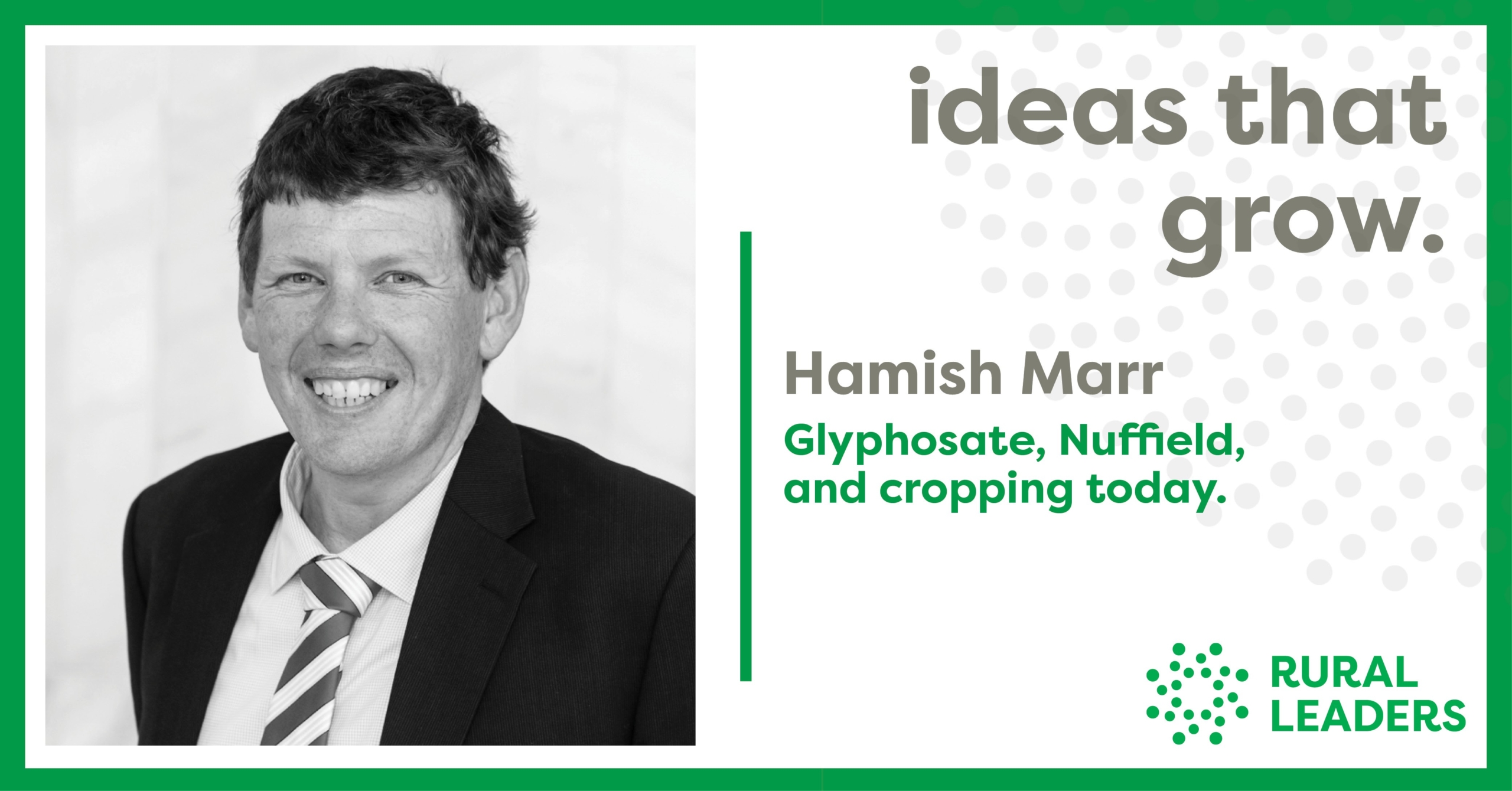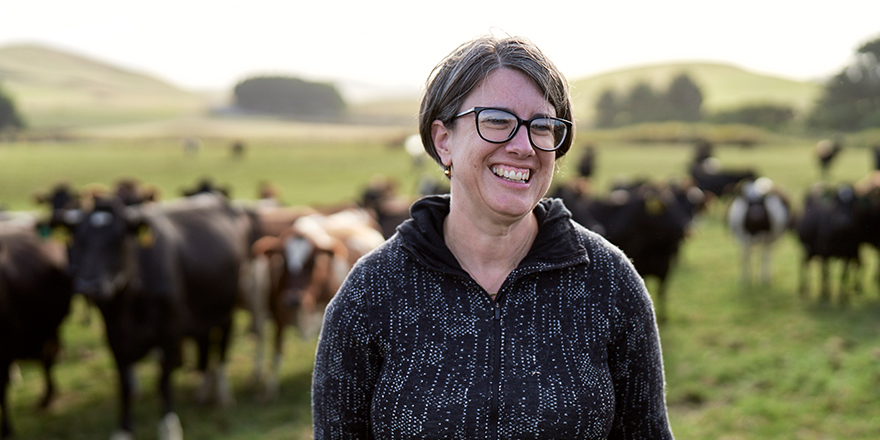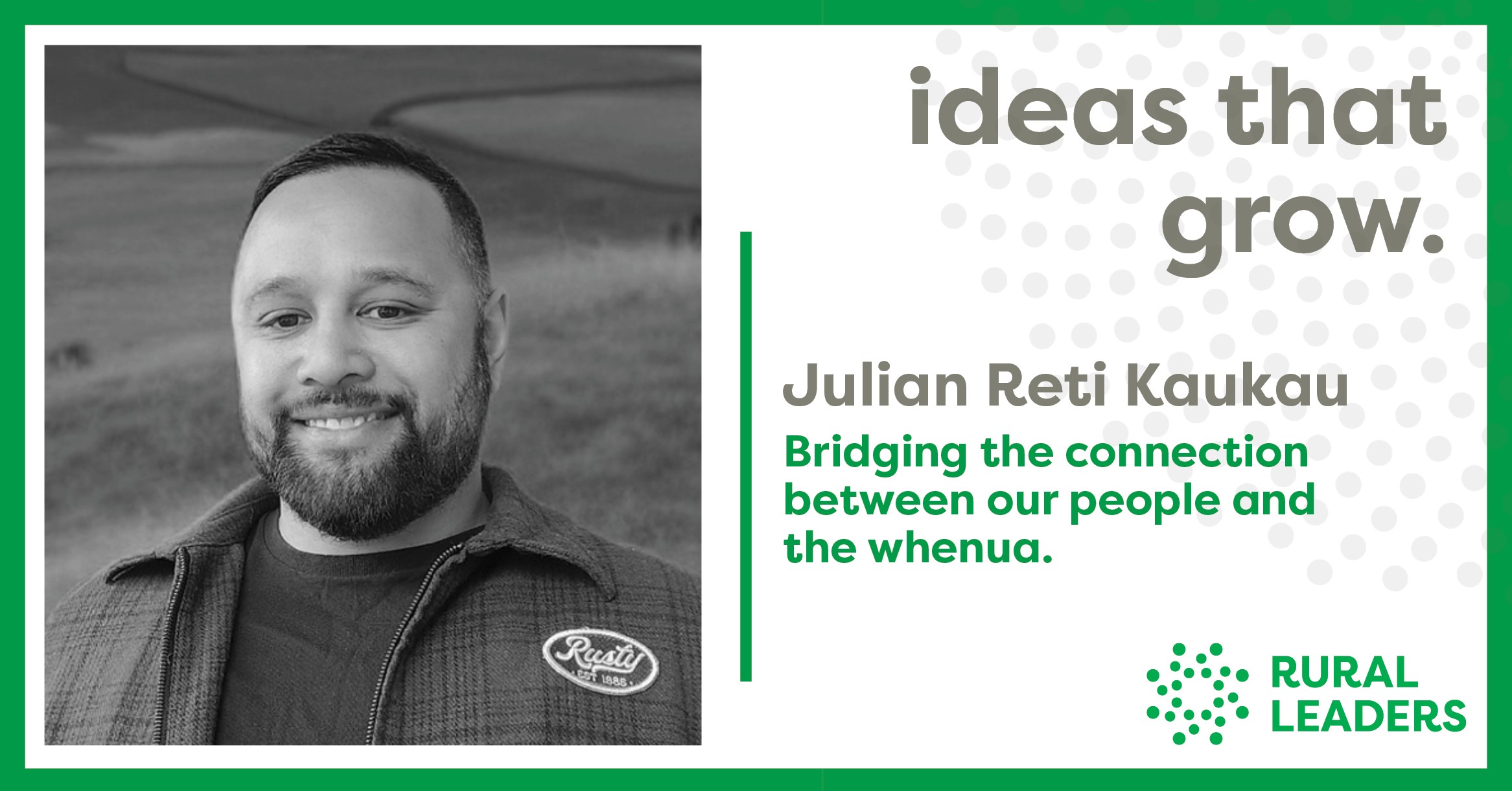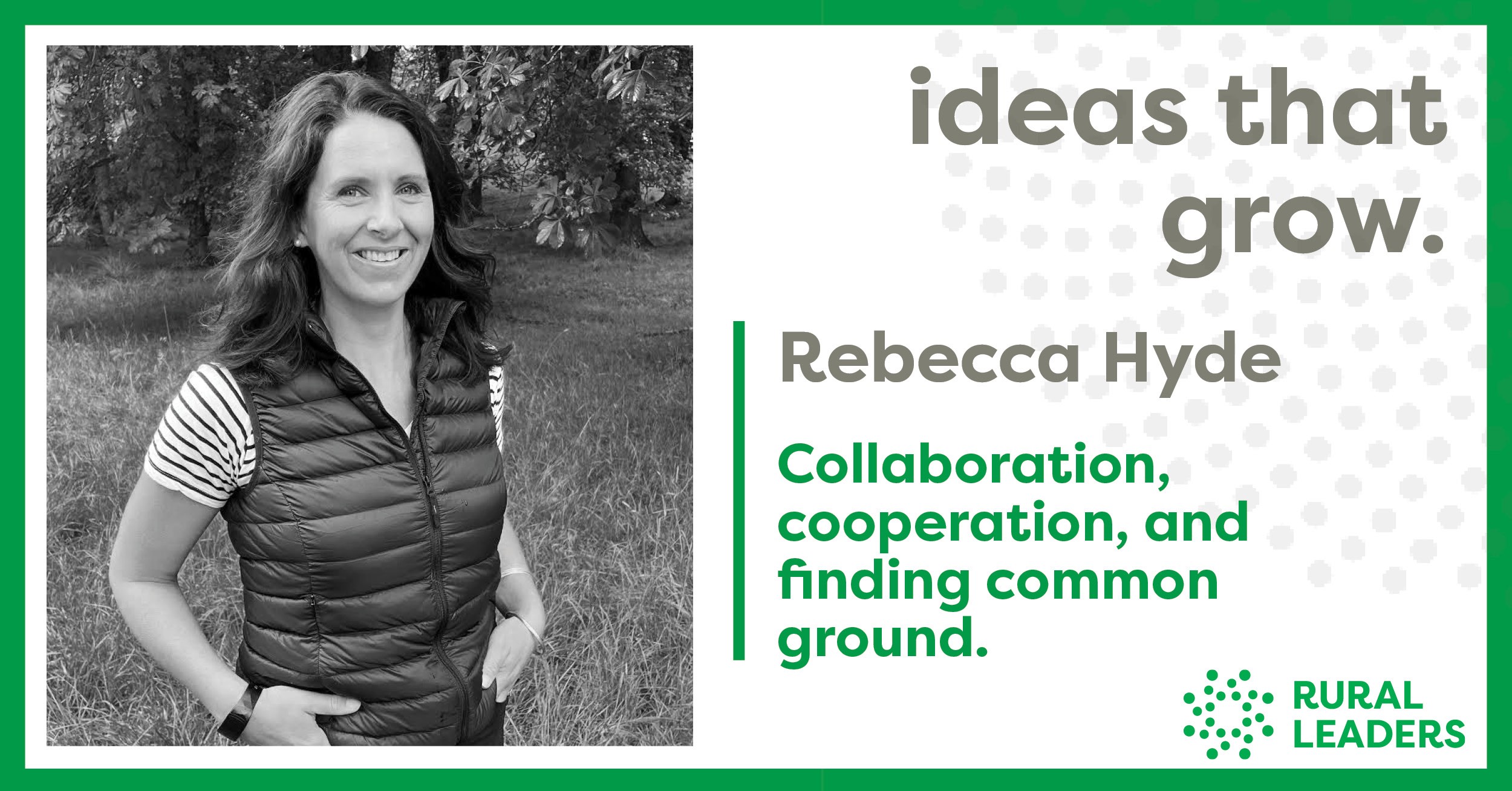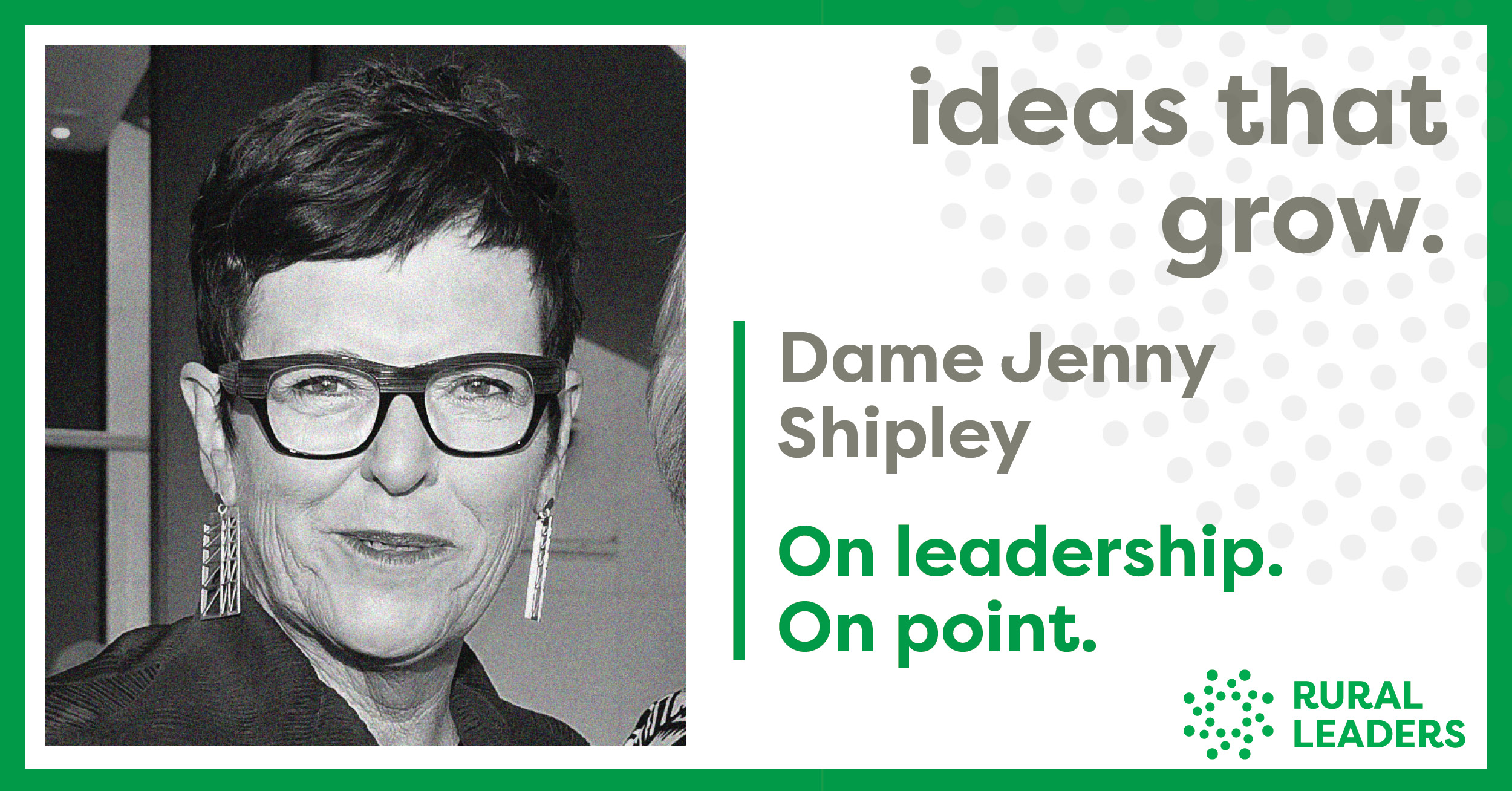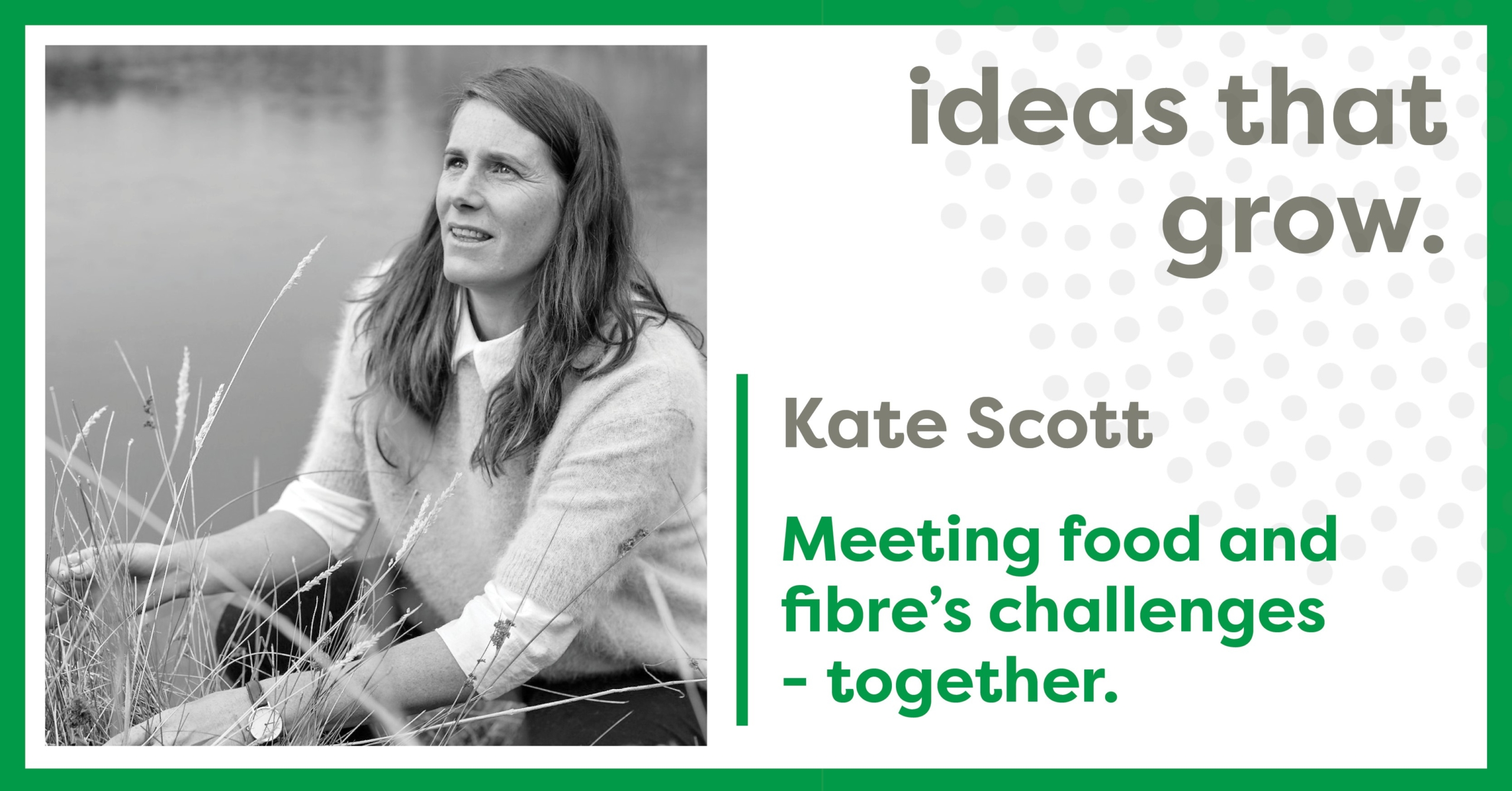Dr Matt Sowcik is currently on sabbatical from his role as Associate Professor in the Department of Agricultural Education and leadership at University of Florida.
As part of his time here in NZ, he joined the Kellogg Rural Leadership Programme in Lincoln. He spoke to Scholars (and Bryan Gibson) about the power of humility in leadership and its role in working together toward a common cause.
Listen to Matt’s podcast here or read the transcript below.
Bryan Gibson – Managing Editor of Farmer’s Weekly.
Kia Ora, you’ve joined the Ideas That Grow podcast, brought to you by Rural Leaders. In this series, we’ll be drawing on insights from innovative rural leaders to help plant ideas that grow so our regions can flourish. Ideas that Grow is presented in association with Farmers Weekly.
You’re with ideas that grow the Rural Leaders podcast. I’m Farmers Weekly Editor Bryan Gibson. This week we’ve got a guest from a bit further afield than usual. We’ve got Dr. Matt Sowcik, who is Associate Professor in the Department of Agricultural Education and Communication at the University of Florida.
G’day, Matt. How’s it goin?
Matt Sowcik, Associate Professor, University of Florida.
It’s going great. Thank you so much for having me on the podcast. Blessed to be here in New Zealand and certainly excited to talk to all the good folks out there.
BG: Now, your area of academic expertise is leadership in the agricultural space.
An American agri-leadership academic in Aotearoa.
MS: Yeah, actually it’s first in leadership. I am interested in the psychology around leadership. I got an undergraduate in psychology and then went off and got a master’s in organisational leadership, and then a PhD in leadership studies.
I had applied it to businesses for a really long time, but found that the space of ag, natural resources and fibre really needed leaders. So was excited to join a number of colleagues down at the University of Florida, to really put all my time into this context. I think it’s so important as we more forward.
BG: You’re on a sabbatical at the moment, taking in a few leadership programmes around the world. And are we the first stop?
MS: Yeah, this is the first stop. And I’m really interested in this idea of humility and how humility impacts leadership. Certainly it’s something in the States that we need a little bit more. And as I was looking across the world, New Zealand was a wonderful place to study how leadership and humility were impacting this particular context. So came to Christchurch, worked in Lincoln, certainly understanding your rural leaders a lot better from the Kellogg Programme.
Humility in leadership.
BG: I’m interested in the concept of humility in leadership. Can you just sort of unpack that a little bit for me?
MS: Yeah. One of the things we struggle with is humility. It is so important and there’s so many reasons for it, but we’ve been under this impression that humility is thinking less of ourselves or not thinking about ourselves. The truth is, it’s just not true. I think New Zealanders really do that well. Farmers really do that well. This idea of humility, having confidence in ourselves, but not overconfidence.
When you get into overconfidence, you miss a lot of opportunities to develop and grow and adapt and innovate, and certainly to be a good leader. So, my interest was in better understanding this idea of how we could have the proper perspective of ourselves, others, this larger world, and use that in a leadership capacity.
BG: The amount of academic research that has gone into how to manage teams and be a leader is massive, isn’t it? It does seem to be we embrace more of a ground-up approach to leadership these days than, what did they used to call it, arrow management, or it’s my way or the highway, type thing.
MS: That’s absolutely right. Yeah, I think that’s true. I think we started to distinguish a little bit better this idea of managing or keeping things the same and running to an idea of leadership where we need really great ideas. Those ideas don’t often just come with one leader at the top who rides in on the horse and saves the day. It’s really this idea around how do we collectively get a group of people, all of their wisdom and intelligence, and certainly skills, and utilise that to adapt and grow and change the world for the better?
BG: It’s softened to if you’re the smartest person in the room, you’re in the wrong room, and that sort of thing.
MS: That’s exactly right. Yeah. No, you find that no one person is going to be smarter than the entire room, and if you are, you’re in the wrong room.
Sitting in on the Kellogg Rural Leadership Programme.
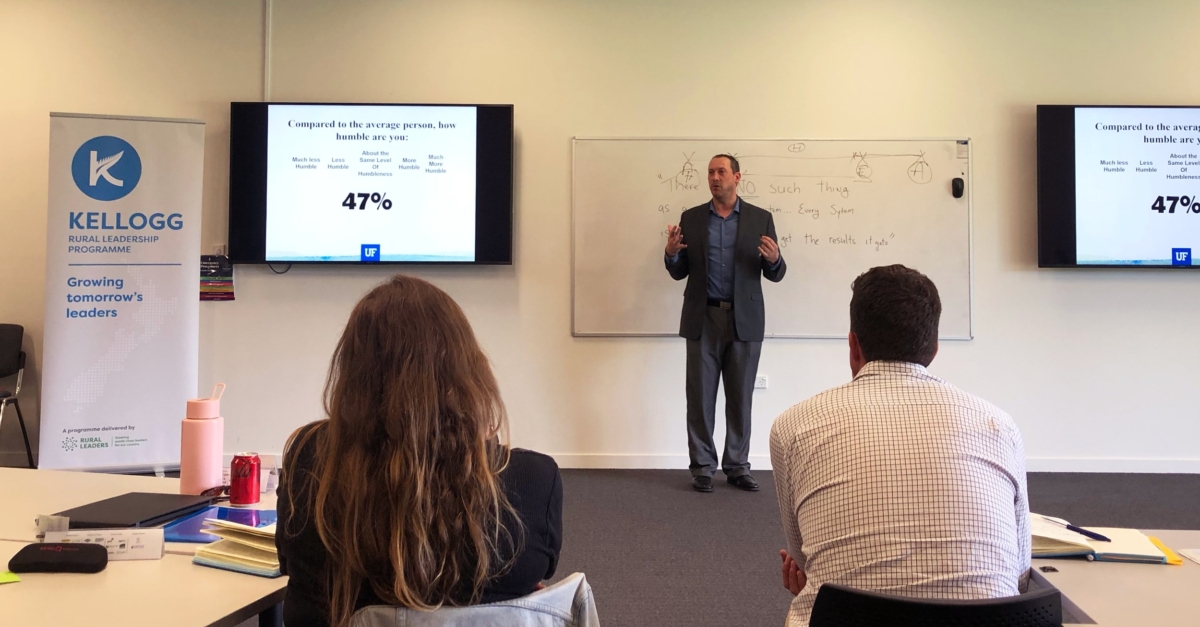
Image: Matt Sowcik speaking on Kellogg Programme One in late January.
BG: So, you’re sitting in on the Kellogg Programme at the moment.
MS: Yeah, it just wrapped-up yesterday, so I had an opportunity to sit through the nine days and to really engage myself. We’re so busy at times, we’re running with administrative stuff and doing our own programmes, that we don’t take the opportunity to learn.
I think what the University of Florida has blessed me with is this opportunity to come out, take a break from everything and just sit down and learn again and engage with this process.
So the Kellogg Programme, as humble as it is, allowed me to come in, have conversations, engage, explore the Programme, and really get to hear from some amazing academics, researchers in the private sector, certainly those who are doing the good work in farming, food and fibre. It was just a holistic experience to understand how leadership works so well here and certainly what we can bring back to the States to be better leaders there.
BG: It’s interesting you say leadership works well here. I don’t know how much you know about the recent history of New Zealand farming, but we’ve had kind of, some would say a leadership schism or something like that. Our farming leaders have really been under the pump and some of them haven’t survived the process. So we’re kind of soul searching in a way.
Working together with humility to solve the big challenges.
MS: I think it’s all about perspective. It’s this idea of the current problems, and certainly I can speak to those. The US is going through some current leadership crisis and of understanding how to engage with people.
What I saw on the Kellogg Programme made me feel positive and optimistic about the next five to ten years, especially around natural resources and farming; this idea that people are coming together. We need to move towards, in kind of a humble fashion, working together and engaging together. Those old philosophies of, ‘I have been doing this for ten years and I must have all the answers’, I didn’t see that on the Programme. What I saw was a collective effort of all of these sectors coming together.
I think that’s the positivity I talk about. I know there’s some current issues, some bumps in the road that are happening right now, but when I look at ten years out, about the leadership that’s happening here, I really feel optimistic that those engagements, those connections are being made and that folks are starting to realise, humbly, that we’re going to need to work together to be able to move forward in a positive direction.
BG: Yeah, I think some of those issues we’ve had last year or two really come down to communication. A failure of communication by government to sell its story, failure of communication by farming, leadership to report back to its stakeholders what’s happening through various processes. And if you’re not communicating well, then people will fill that gap with their own stories, if you know what I mean.
MS: I do know what you mean. I think there’s something so humbling about that, isn’t there? There’s this idea that we need people and people need us and we have to have that line of communication.
They often talk about communication as being the most important tool of leadership. If you don’t do that, if that breaks down, all of the other pieces, the innovation, the adaptation, the opportunity to move forward collectively, all really suffer from that.
The first step is to have some self-awareness, to be able to say, we have failed over the last couple of years to do this. So, how do we make sure we don’t fail in the future? How do we collectively come together even if we don’t agree? How do we have that civil discourse so we can understand eachother better?
The truth is, you’re all in the same boat here. I mean, it doesn’t matter who you are: Government, farmer, business owner, everybody’s on the same island moving in the same direction. And there’s some really important pieces of that, whether it’s exports, whether it’s understanding the changes in climate and some of the issues you’ve been dealing with around that. It’s a collective effort to be able to move that forward.
The challenge of individualism in the US and NZ.
BG: Yeah, we’ve had quite a number of discussions here about ‘carrot or stick’ in terms of getting progress going in environmental changes, sustainability, that sort of thing. I think farmers being sort of individualistic type people in a certain way, tend to want to be in control of their own destiny more and have (to be given a strong) reason why they should do something. Market driven approaches often work best, rather than government-led regulatory approaches. Is that similar in the States?
MS: Yeah, I actually think it’s probably more so. It’s not just farmers that we see that from, we’ve built our country on that idea of individualism and the ‘American dream’. Go get it! Pull your boots up! You can make it happen! What we’re finding is that sort of approach really lacks some humility.
My interest in researching that is, can we address some of these issues now? What we’re trying to understand in the States is, there are some problems where you can do that. If you think about it, there’s some issues that happen on a farm tractor breaks, you know that broken piece, you can fix that broken piece. You’re having some issue with a particular crop, you know that well enough. But, the problem with things like climate change and policy, they’re not simple fixes.
There’s this wonderful quote that I really love that talks about ‘all systems are not broken. There’s no system that’s broken. Every system is perfectly aligned to get what it gets.’ And what that means is no matter which way a system works out, it’s going to get the results you see at the end.
So the truth is you have to almost break it yourself if you want to change it, if you want to fix it. Those issues aren’t ones that are easily fixed by one person. They’re not like just changing out a gear. You have to bring people together, if we’re going to talk about things like policy and climate change. Those issues are ones that we need to have more than one person and they’re going to be issues that we’re going to have some trial and error, and mistakes on. Then as we move that forward, just continue to make it better and better along the way.
BG: One concept that has had some real wins over the years in New Zealand are catchment groups. That’s a collection of farmers and other stakeholders in say, a valley, where all the water runs into the same place. They all work together to protect the environment more, clean up the waterways, that sort of thing. What they found is that that sort of groupthink way of doing things with aligned goals, and to be honest neighbour peer pressure, really helps to get things moving in the right direction.
MS: Yeah, it just makes sense. It’s stepping back from ‘me’ being the only thing that’s important to collectively saying ‘we’re all important’ and that actually there’s this bigger purpose we’re all working towards.
Common purpose.
A lot of the research around humility has suggested that this idea of people coming together with a common purpose, which really is leadership common purpose, you start to understand not only will you achieve that purpose, but a lot of other things come along with it.
One of those is performance or outcomes. You’re more likely to achieve an outcome if everyone’s buying into it. If there is some of that social pressure, ultimately everybody kind of shares information, communicates and engages in that process.
I’m not surprised to hear that, and I think we need to do that a lot more. It’s ‘how are my problems also similar to others’ problems?’ What are they doing? How are they engaging? Instead of keeping that in and pretending that’s some market advantage.
The real market advantage here is being able to share information, because if I figure something out or you figure something out, that changing, sharing, engaging, really is a process to not only move in that direction, but then to be able to move further in a direction, because things will continue to change.
BG: Can you tell me a little bit about this leadership programme you teach at the University of Florida?
Leadership education at University of Florida.
MS: I’m very fortunate. I have a kind of three-pronged responsibility at the University of Florida. Certainly, teaching is one of them. We teach the undergraduate level for the entire university. We offer a certificate and minor in leadership studies to undergraduates to get them started or interested in leadership.
We teach a masters and PhD in leadership in ag and natural resources. So that’s an opportunity to bring those folks in who are interested in doing some consulting in the area or going off and teaching leadership for land grant universities. That’s just one part of what I do.
I also do research. We’re a research one institution. So, looking at how we build organisational leadership programmes within different ag industries. I’m real interested in this idea of how do we build great capacity in those who are going to take over farms, who are going to work in those communities and engage in that process? How do we start to develop that young talent? But my favourite part of my job is what we call extension, and this is going out and practicing it. So, here I run two leadership programmes myself.
One is for our county commissioners. We have 67 different counties in Florida, usually a board of five. Folks kind of oversee that when they get elected, they come to our programme and they start to learn a little bit about leadership. They start to learn a little bit about the practice of leadership in that government setting and we help them better understand how ag and natural resources are impacting their job in a way that they can lead better from that government seat and work together as a board.
Then I also will go out to different ag and natural resource industries and provide training and engagement. Really those three approaches are my job and it leads to what I think is a healthier Florida and certainly a Florida that really appreciates ag and natural resources as we move forward.
Experiential leadership education with Rural Leaders’ Kellogg Programme.
Certainly speaking of the Kellogg Programme I think the things that I learned there is this is an extraordinary programme where individuals from different industries have an opportunity to come and communicate, engage with each other. What I really loved about the Programme is that they consistently, and in a very humble way, said, you’re going to get ‘a little bit’ out of what we talk about.
But the power is collectively coming together. And when we talk about communication, when we talk about humility, it is the folks in the room having access to each other, to share, to engage, and that’s really the power of the Kellogg Programme. Besides all the wonderful speakers and opportunities, it’s that ability for individuals in the Sector to be able to come together and communicate.
For more information on Rural Leaders, the Nuffield New Zealand Farming Scholarships, the Kellogg Rural Leadership Programme, or the Value Chain Innovation Programme, please visit ruralleaders.co.nz
